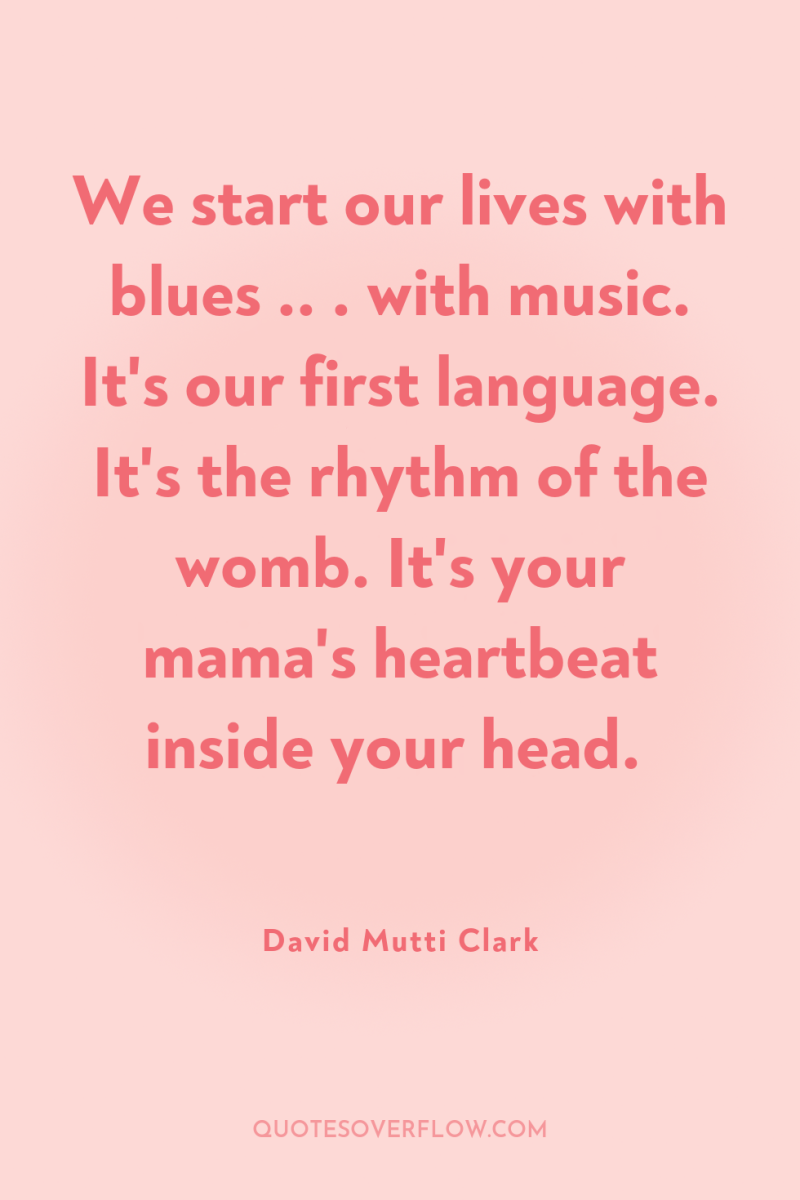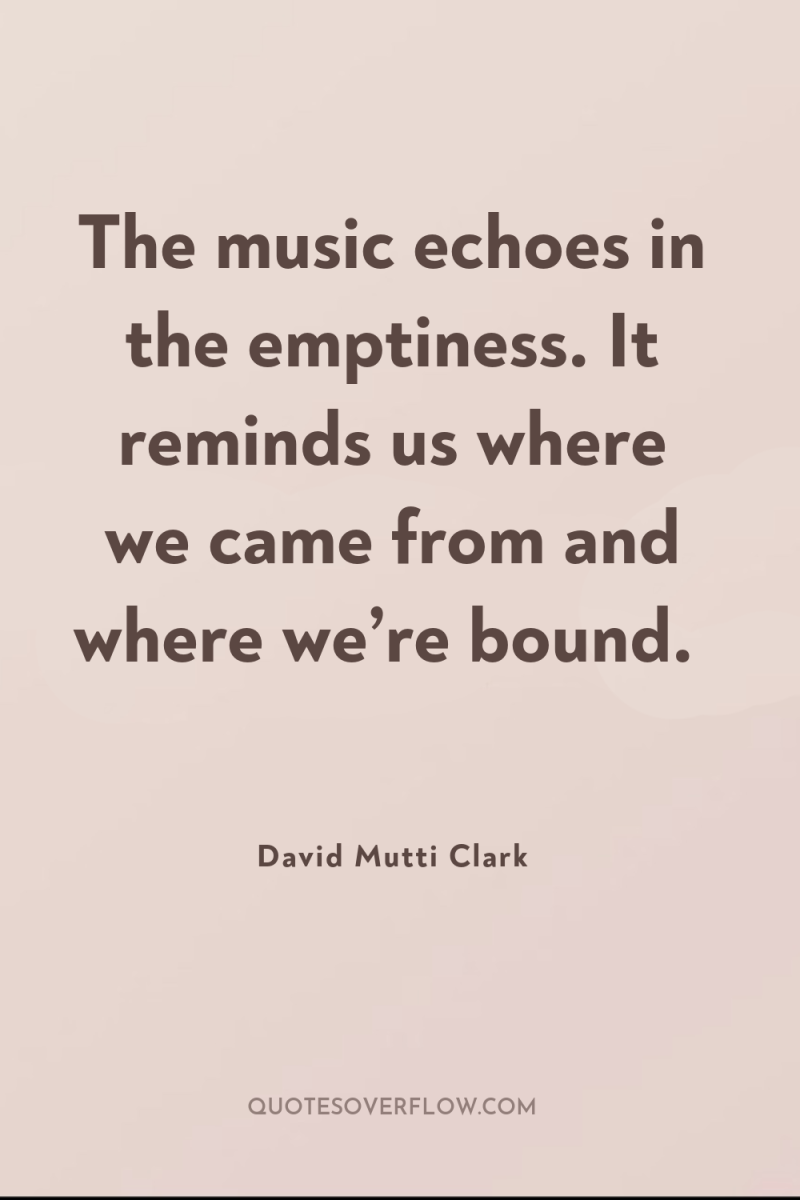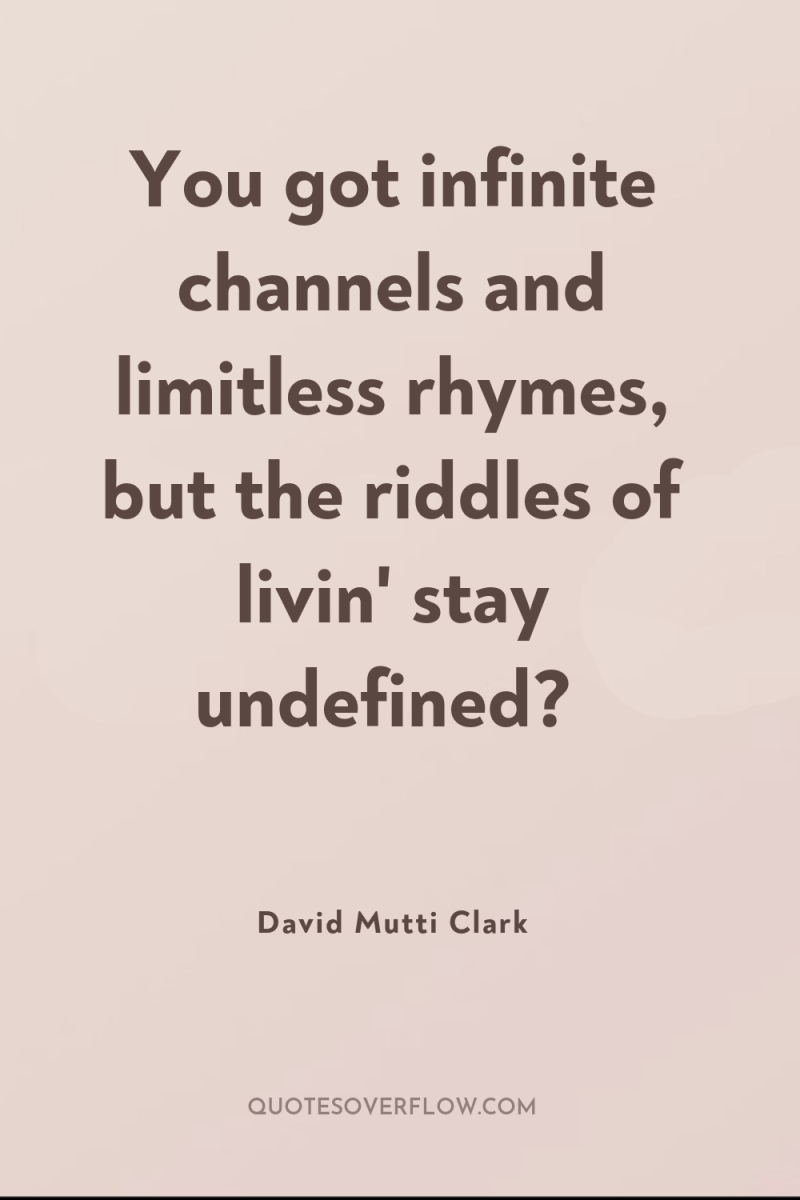1
The rich fop Francis of Assisi was bored all his life―until he fell in love with Christ and gave all his stuff away and became the troubadour of Lady Poverty.Peter Kreeft
2
And here's to the blues, the real blues– where there's a hint of hope in every cry of desperation.David Mutti Clark

3
We start our lives with blues .. . with music. It's our first language. It's the rhythm of the womb. It's your mama's heartbeat inside your head.David Mutti Clark

4
The music echoes in the emptiness. It reminds us where we came from and where we’re bound.David Mutti Clark

5
You got infinite channels and limitless rhymes, but the riddles of livin' stay undefined?David Mutti Clark
6
And then the great music of which the world is made took him over, beyond thought, beyond control until he heard her cry his name and they fell together off the edge of the world.Jean Gill
7
Your muse ain't singin' on your MTV? Can't even see him on your HD TV?David Mutti Clark
8
For the lady’s husband to become actively jealous was considered both doltish and dishonorable, a breach of the spirit of courtesy. Yet the record suggests that this was a fairly common occurrence and one of the occupational hazards of being a troubadour. The most famous crime passionnel of the epoch was the murder of Guilhem de Cabestanh, a troubadour knight whose love for the Lady Seremonda aroused the jealousy of her husband, Raimon de Castel-Roussillon. The story goes that Raimon killed Guilhem while he was out hunting, removed the heart from the body, and had it served to his wife for dinner, cooked and seasoned with pepper. Then comes the great confrontation:“ And when the lady had eaten of it, RAimon de Castel-Roussillon said unto her: “Know you of what you have eaten?’ And she said, ‘I know not, save that the taste thereof is good and savoury.’ Then he said to her that that she had eaten of was in very truth the head of SIr Guilhem of Cabestanh, and caused the head to be brought before her, that she might the more readily believe it. And when the lady had seen and heard this, she straightway fell into a swoon, and when she was recovered of it, she spake and said: “Of a truth, my Lord, such good meat have you given me that never more will I eat of other.” T Hen he, hearing this, ran upon her with his sword and would have struck at her head, but the lady ran to a balcony, and cast herself down, and so died.”..the story is probably apocryphal… grisly details..borrowed from an ancient legend..the Middle Ages believed it and drew the intended moral conclusion-that husbands should leave well enough alone. Raimon was held up to scorn while Guilhem became one of the great heroes of the troubadour epoch. .Horizon Magazine